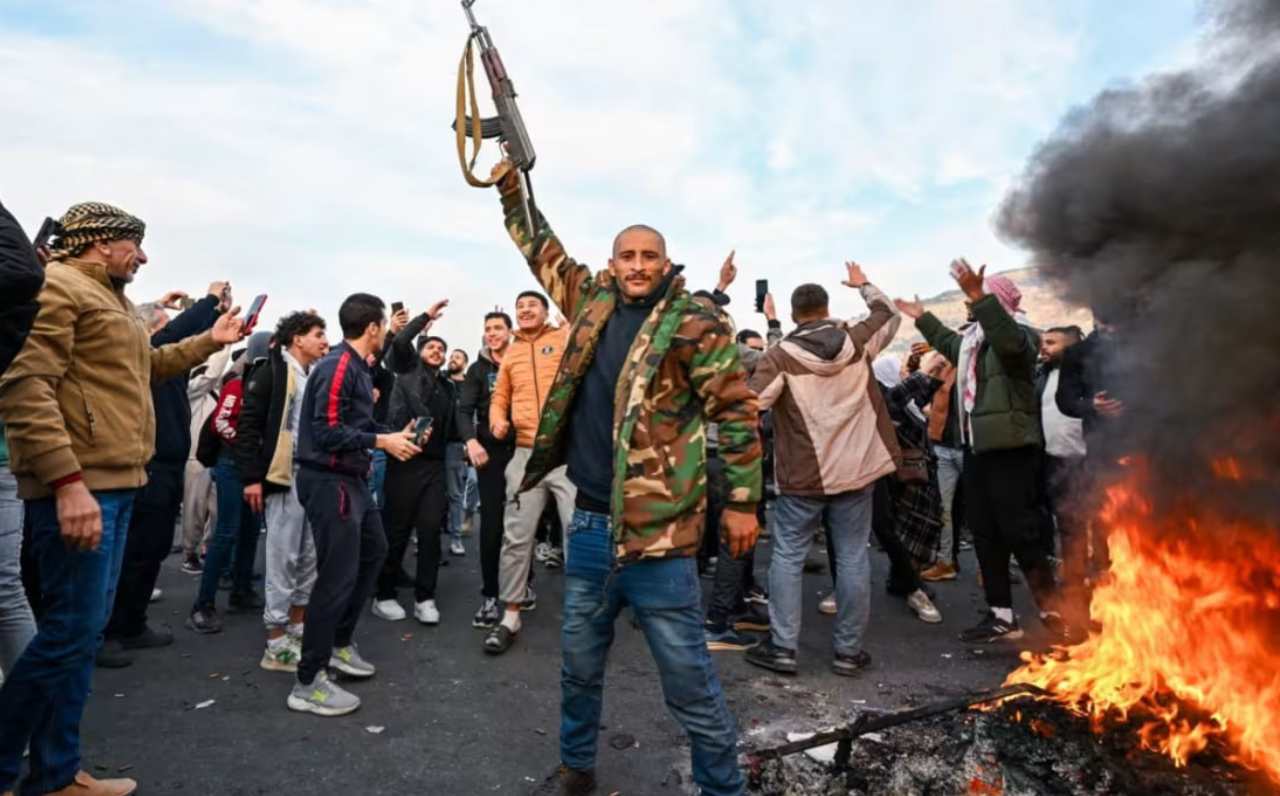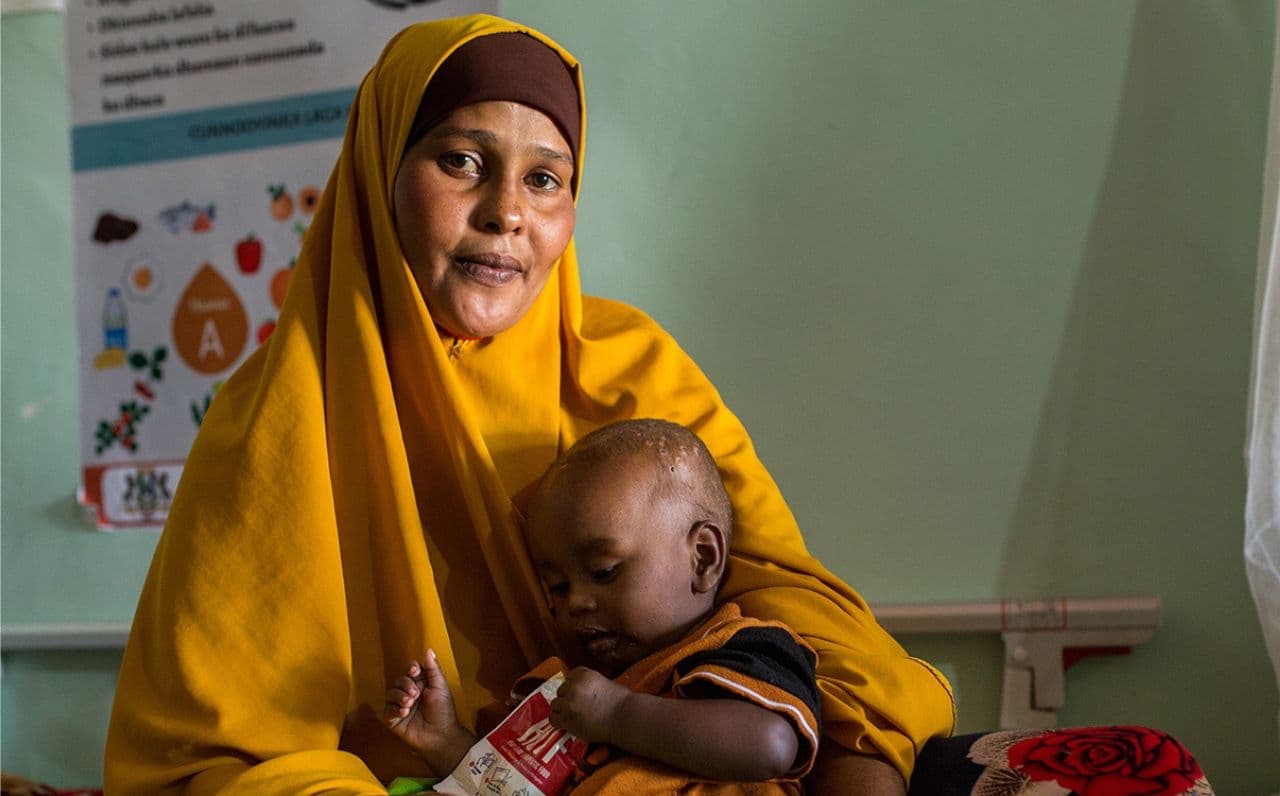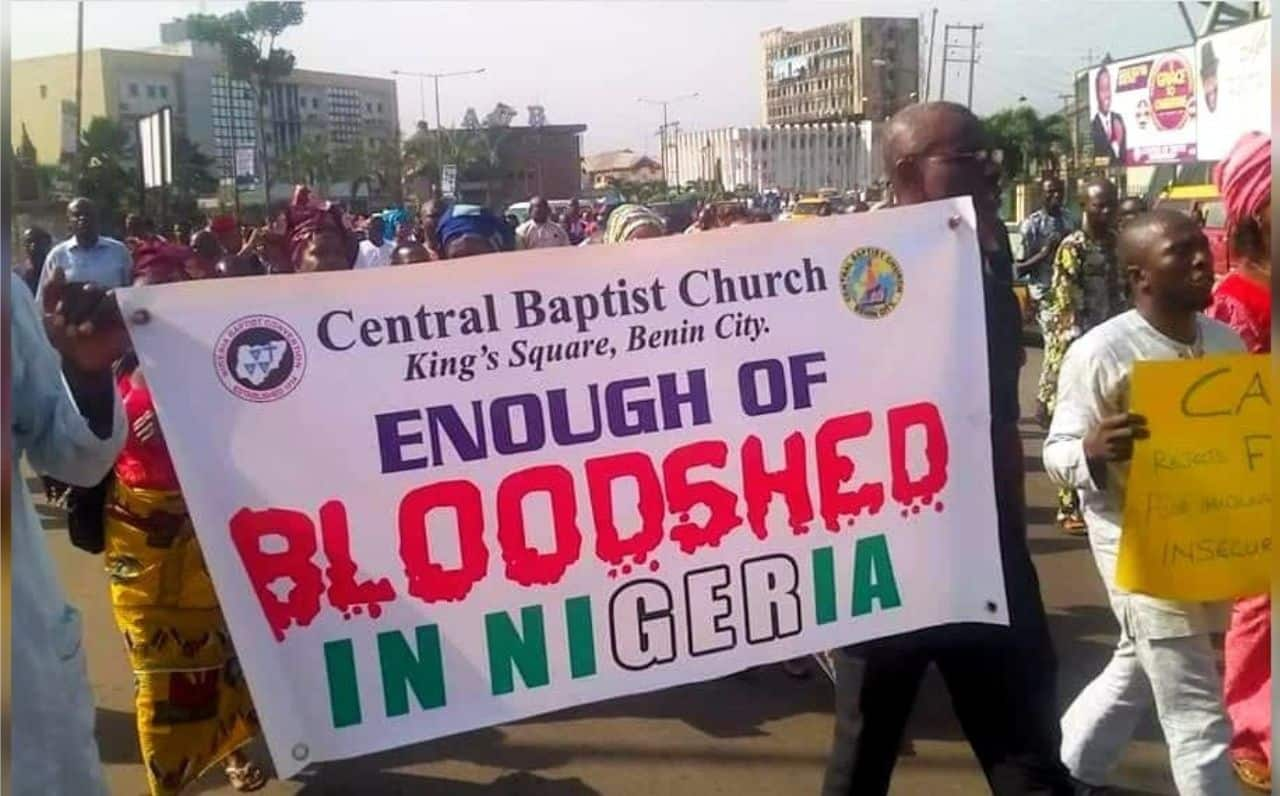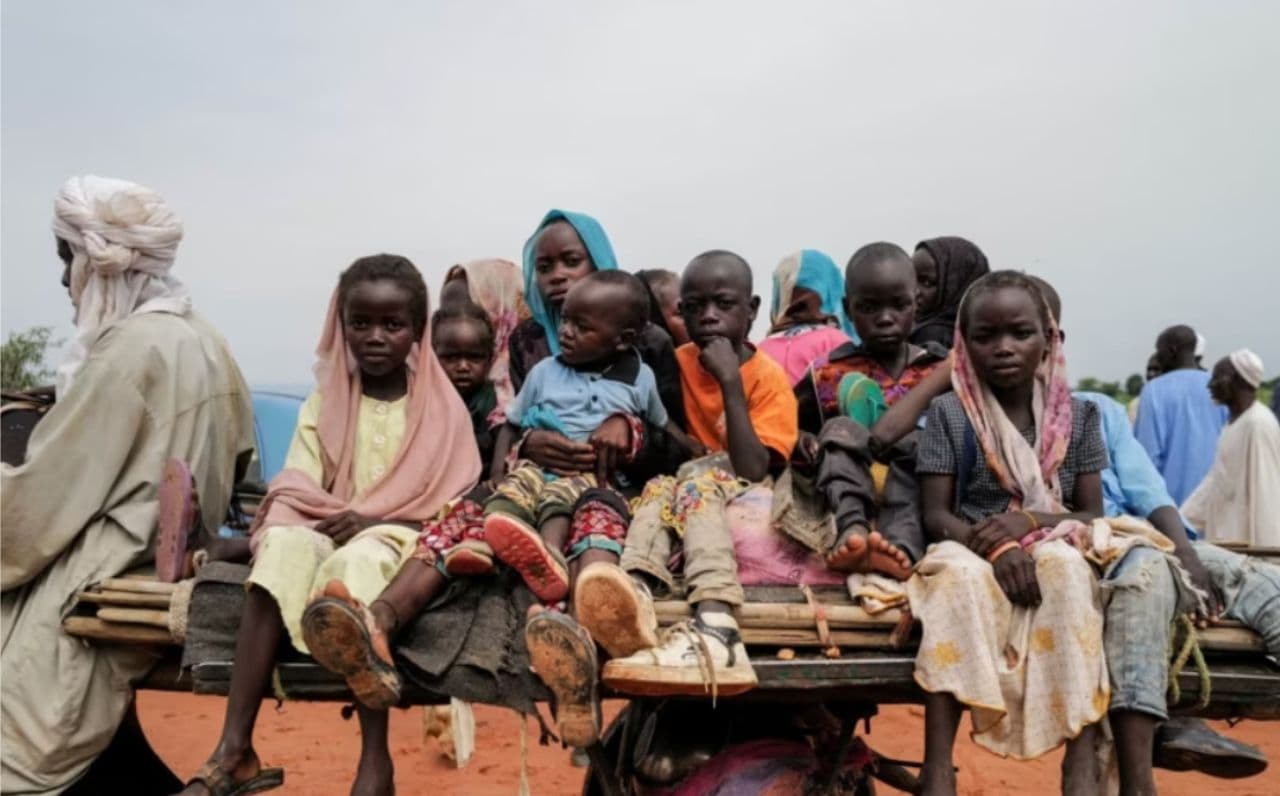Situation of Nigerian civil war refugees
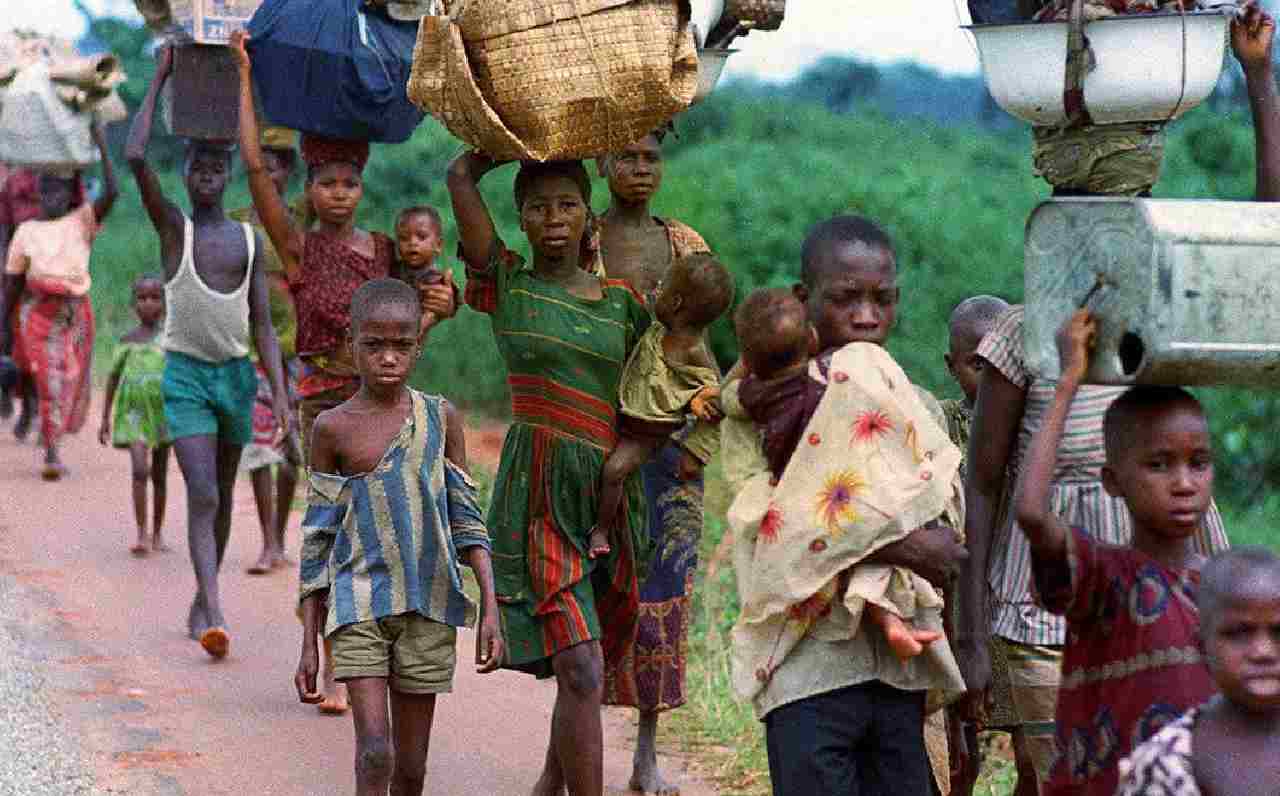
Introducing a new method of humanitarian aid.
Musa (not his real name) arrived the camp on the outskirts of Abuja with his family a little over a year ago from Maiduguri, the biggest and capital city of Borno, the largest state in Northeastern Nigerian. Maiduguri is the epicentre of the Boko Haram insurgency.
In time, Musa was able to establish a new contact with a farming community in Nasarawa, about 40 miles from Abuja. With this new network he was able to get a parcel of land loaned to him for farming. They also provided him with a start-up capital of 20 000 naira (about US$55) to support his farming. His repayment is in the form of a proportion of the harvest.
This form of traditional lending is used in many communities, mainly rural, across Nigeria. Usually it takes the form of host communities and traditional chiefs providing lands for visitors from other areas and regions to settle among them, farm the land and pay the rent annually in kind. The payment is often modest, but in other places the so-called “settlers” are charged more. Oftentimes these “settlers” go on to become landowners.
The arrangement, like every arrangement driven by social networks, works on the basis of norms of reciprocity and mutual trust. It is by no means perfect, but it does work for many households like Musa’s. Indeed for many, this social capital makes the big difference between starvation and survival, between hopeless destitution and recovery.
Musa’s story is just one of many we came across during our recent study in northern Nigeria.
We also found that entrepreneurship training is more effective in helping otherwise unemployed youth to provide for themselves, generate income and support their families. This underlines the important role of human capital, complimenting the contribution of social capital in the recovery strategy of displaced households.
Traditional approaches
Traditional approach to humanitarian action is rooted in top-down interventions characterised mainly by supply of relief materials and provision of funds to meet urgent existential needs such as medical treatment, food and shelter. These are definitely needed. However, can, and should, humanitarian action be designed to do more, especially in the long-term?
One big downside to top down interventions is that they can have the unintended impact of creating a pattern of dependence on the part of affected people. This can undermine their own agency, especially in the long-term. But, given that displaced people are naturally driven by the sheer force of necessity to find ways by which they can help themselves cope and recover, there is a scope for humanitarian action to do more to, in effect, help people to help themselves.
Source and Credit: http://Conversation.com
Africa

2022 Jan 10
Middle east

2024 Dec 10
Africa

2024 May 10
Threats against Christians in Australia increase
International, Americas

2024 Apr 16
Increasing Arrests and Faceless Victims Revealed in Latest Findings.
Middle east

2024 Feb 23
SimilarNews
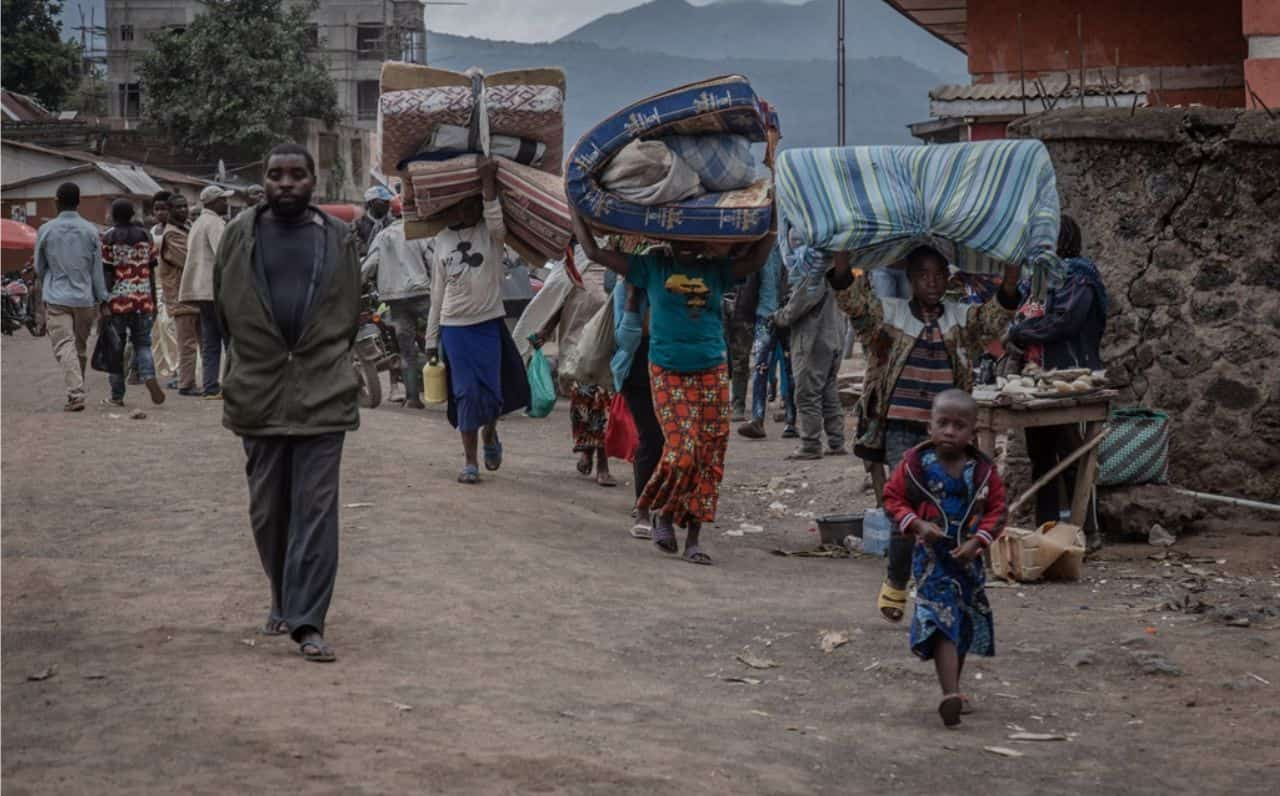 Congo-Rwanda Border Tensions Surge: Conflict Fears Mount
Congo-Rwanda Border Tensions Surge: Conflict Fears Mount Escalating Hostilities Prompt International Concern
Africa

2024 Feb 20
